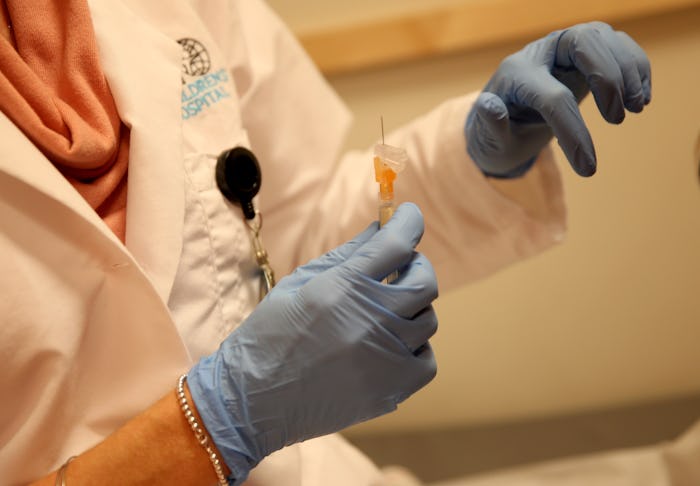Life

Adults Should Get These Vaccines To Stay Healthy
While you were probably totally on top of getting your vaccines as a kid (or, rather, your parents were on top of it, and you went along, crying the whole time), chances are you haven't been paying as much attention since you graduated from your pediatrician to a general practitioner. So, which vaccines should adults get? New guidelines from the Centers for Disease Control and Prevention are here to answer that question.
On Monday, the CDC released updated recommendations about a number of vaccines for 2017. These are the guidelines your doctor will be pulling from when you go in for your annual visit, so you should go ahead and familiarize yourself with them too. The lead author of the report, Dr. David Kim, wrote,
All adults need immunizations to help them prevent getting and spreading serious disease that could result in poor health, missed work, medical bills, and not being able to care for family.
The most regular recommended adult vaccine is for influenza, which the CDC recommends receiving every year. While this may seem like old hat to you, the CDC did have a couple of new thoughts regarding the vaccine. First of all, studies have found the nasal flu vaccine to be largely ineffective in adults, so go for the traditional flu shot, even if you hate needles. And if you've got an egg allergy, the CDC advises you to get any age-appropriate flu vaccine, but under the supervision of a health care provider.
It's also important for adults to have a Tdap vaccine, which covers tetanus, diphtheria, and pertussis (or whooping cough), and get a Td booster every 10 years. However, as of now, only 20 percent of adults do so, according to the report. According to the CDC's website, pregnant women should also get a Tdap for each pregnancy, in order to help protect the baby.
With the new guidelines, the CDC also recommends that adults receive two doses of the meningitis vaccine, or three if there is a meningitis outbreak, or the adult is at increased risk. In terms of the HPV vaccine, the CDC now recommends two doses if the person starts them before age 15, and three doses if started later than that. And people with chronic liver disease should get the hepatitis B vaccine series.
If you've still got questions, you can read the full vaccine report from the CDC here, and you can also take this handy CDC quiz about the vaccines you might need.
Although getting vaccines isn't the most fun activity, it's important for your health and the health of those around you. Read up, and call your doctor to schedule a visit.